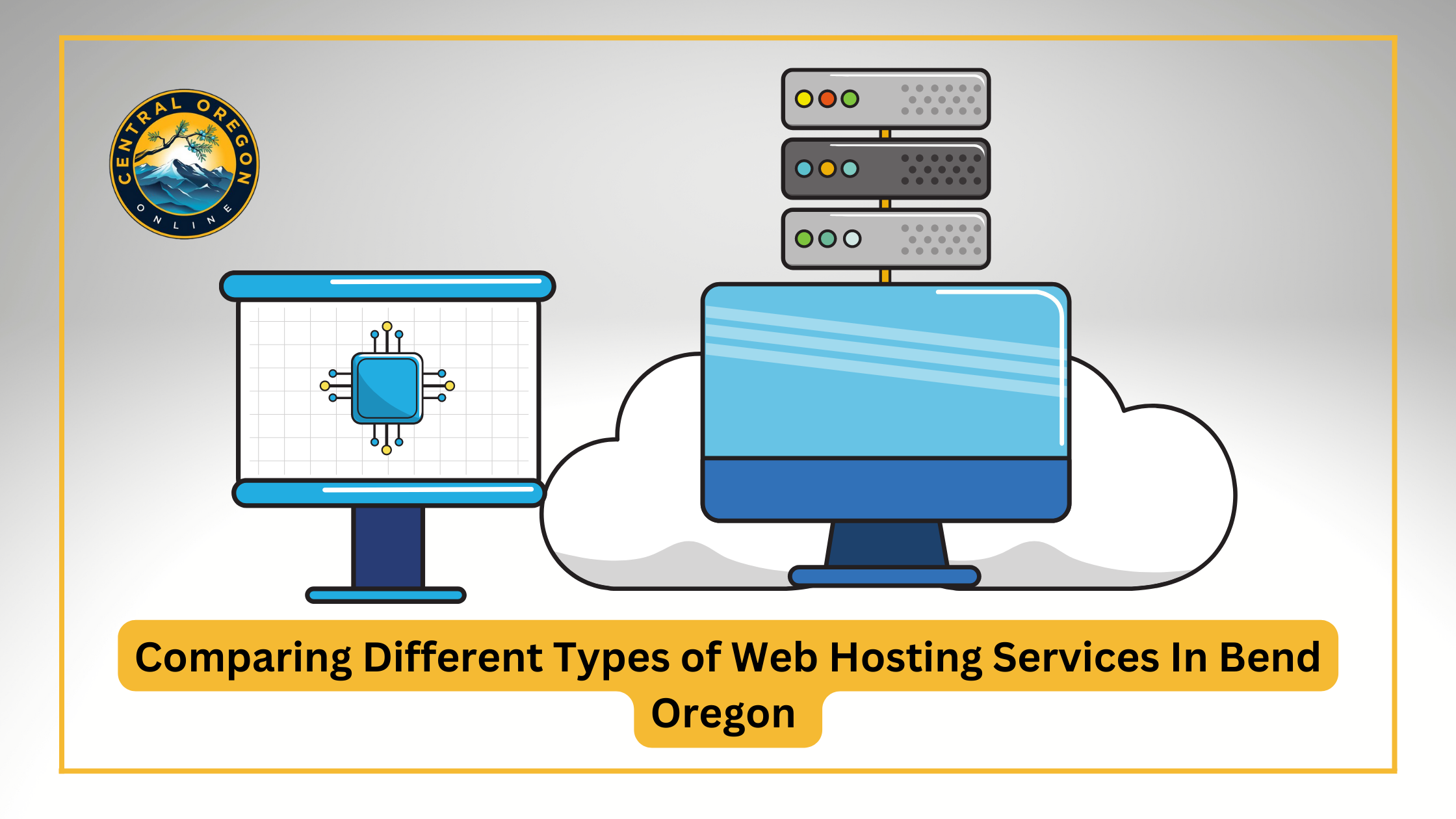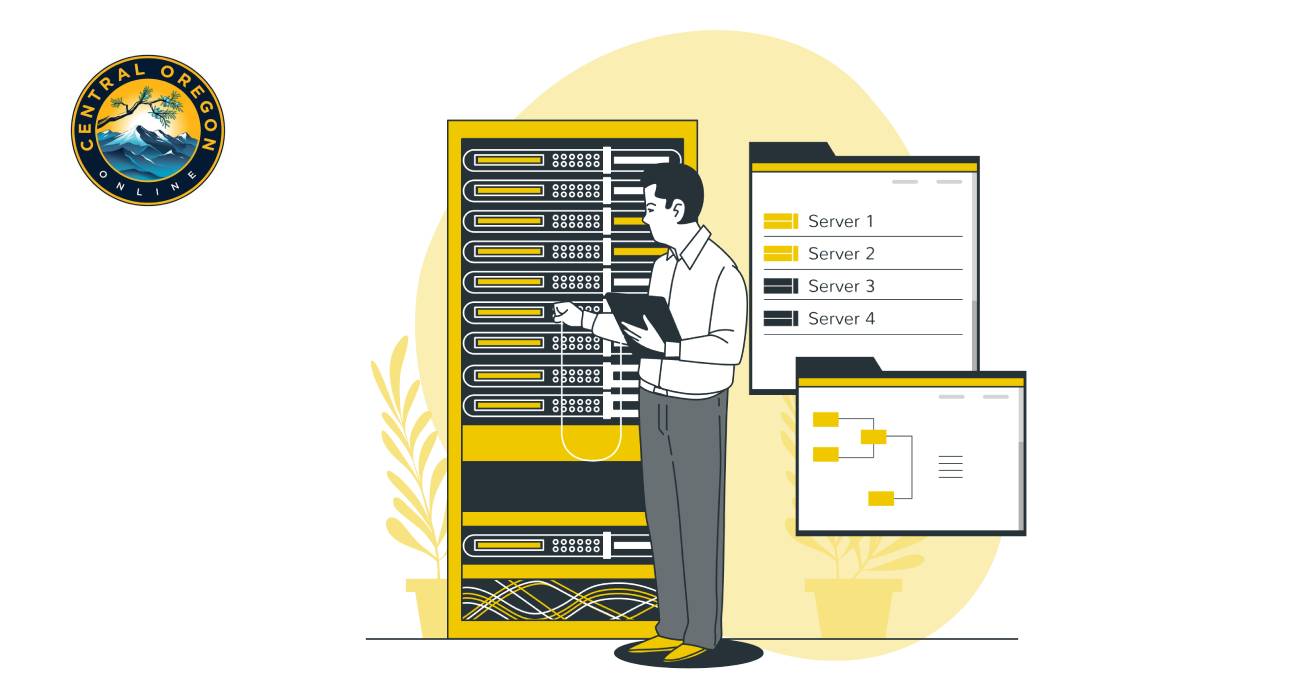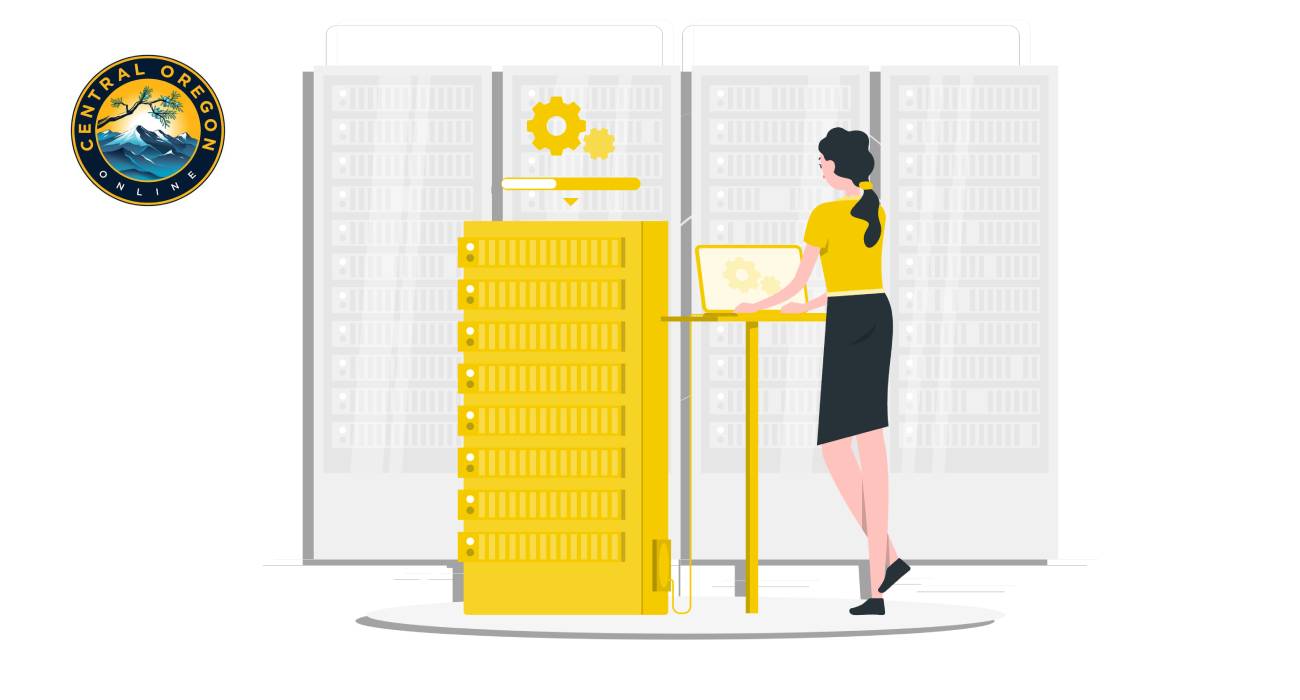
Comparing Different Types of Web Hosting Services In Bend Oregon
There is a lot of misunderstanding about the different kinds of web hosting services In Bend Oregon out there.
What are the many web hosting options available?
There are a variety of web hosting services that will all allow you to publish your site online. Nonetheless, they all focus on meeting the specific requirements of website owners, no matter how large or small.
Today, the hosting industry is dominated by four basic service models. Host sharing. In the Cloud Servers. Dedicated Server Hosting. Plus, Dedicated Server Hosting.
Let’s get down to some serious learning right now!
Different Server Hosting Options
Typical server hosting configurations include shared hosting, dedicated hosting, VPS hosting, and cloud server hosting. When comparing specs and costs, each option has its perks and cons.
You should learn the advantages and disadvantages of each server hosting type before deciding which is best for your business or personal needs.
Shared Hosting
In a shared hosting environment, numerous clients share a single web server and its associated resources. Consider the experience of apartment life. Several apartments can be found in a single structure. The swimming pool, fitness center, badminton court, etc., would be shared among all of these apartments. Shared hosting allows multiple users to store their websites on a single server while sharing the costs and resources of that server with one another.
The simplicity of shared hosting is one of its main selling points. For the most part, customers of shared hosting don’t have to worry about things like security, upgrades, or maintenance because the server business handles all of that.
But shared hosting’s shortcomings include limited access and slower speeds. No user is permitted to access the server’s root directory. If the server goes down, all the websites hosted there will be unavailable, which usually means a loss of revenue for everyone. Don’t put all your hens in one basket, as the old adage goes. Since the hosting’s resources are shared, scaling is also a challenge with shared hosting. If you want new exercise equipment for the building’s shared gym, for instance, you’ll have to consult with your other residents multiple times, which is inconvenient and time-consuming. The safety of your data cannot be ensured either. Websites are interconnected, so if one is hacked or infected with malware, it will spread to the others.
Dedicated Hosting
Dedicated hosting, often known as a dedicated server, is a type of Internet hosting in which a client leases a full server rather than just a portion of one. Nobody other will have access to the server while you are using it. As comfortable as being at your own home. You are not obligated to allow anyone else to use the house. Furthermore, you can do whatever you choose with the server’s tools because you have administrative privileges. The hosting service can be customized to your liking.
The benefits of dedicated hosting are easy to see. You can take use of top-tier functionality. The performance would still be heavily reliant on the server’s hardware. With a dedicated server, however, your websites will function more quickly and smoothly because you won’t have to share the server’s resources with anybody else. Since no one else can access your dedicated server, your data is naturally safer. Furthermore, a dependable web host provides round-the-clock access to trained specialists that can help you out with any issues you may have.
A dedicated server’s one drawback is that its upkeep necessitates some familiarity with computer networking and server administration. Accordingly, a novice should not start off with a dedicated server. It’s no secret that dedicated servers are the most expensive type of server hosting.
VPS Hosting
VPS stands for “virtual private server,” and it’s a virtual machine that has its own OS (operating system), usually Linux or Windows. VPSs have a mother computer, however unlike dedicated servers, the machine is partitioned into numerous separate sections. Consider the advantages of a low-density condo. Even though these sections share a server, each section has its own set of server requirements and resources. As a result, virtual private servers can save you money if you’re looking for an alternative to a dedicated server.
The benefit of virtual private server hosting is that it provides consumers with access to high-quality server performance at a reduced cost. There is a higher level of protection for your data compared to what you get with a shared hosting plan. In addition, each user has their own root privileges on the server and can make any adjustments they like to their virtual private server.
However, there is a downside to the independence offered by a VPS that the user manages on their own. That is, setting up the server requires some level of technical expertise. For a newbie who is just starting out, this could be quite challenging. However, some server hosting providers provide managed VPS options, relieving you of the burden of routine server administration.
Cloud Hosting
The term “cloud server” refers to a specific category of web hosting service that is developed, housed, and made available via cloud computing. Cloud servers have the same features and functions as regular servers, but they are accessed from a remote location by a cloud service provider. Consider reserving a room through the website AirBnB. You’re using a rented property for your own personal purposes. Plus, you might have to pool your resources with the other tenants. Cloud hosting, in contrast to shared hosting, is built on multiple servers, giving you access to greater resources.
One of the main advantages of cloud hosting is how reliable it is. It’s not that cloud services never have issues, but glitches are uncommon. Hosting in the cloud provides unlimited scalability and adaptability. Since the server can be accessed remotely, you can increase its capabilities to accommodate growing demands for it. The cost of using cloud services is minimal. As both technology and the market continue to advance at a quick pace, cloud servers are becoming not only more trustworthy but also more reasonably priced for business applications.
How to Determine Which Server Is Right for You
If you’re in the business of selling products online or providing services, you need a website to compete. With a website, you can tell a more compelling story to your target audience, display your portfolio, highlight your services and products, and convert visitors into paying customers. A website is essential, thus having one is a requirement. But how can you decide which web hosting server type is ideal for you?
We recommend shared hosting for personal websites and blogs where you may share your creative works or fashion designs with the world.
In order to handle the volume of traffic that their sites receive, small and medium-sized businesses are ideal candidates for virtual private server hosting. Traders that employ EAs on the Forex market might also benefit from a virtual private server (EAs).
Big corporations with sensitive data to protect and a large volume of daily visitors to their website should look into dedicated hosting.
Any company can benefit from cloud hosting. You may get by without any prior understanding of server hosting thanks to modern tools and a competitive market. Having a hassle-free cloud hosting experience is possible with the help of a dependable web host.
The one and only drawback to cloud hosting is the requirement for expert-level understanding of server hosting. However, here at CentralOregon.Online, we aim to offer you a hassle-free service in the cloud. You can relax knowing that we are a top-tier web hosting provider bend oregon.
CATEGORY:Blog




